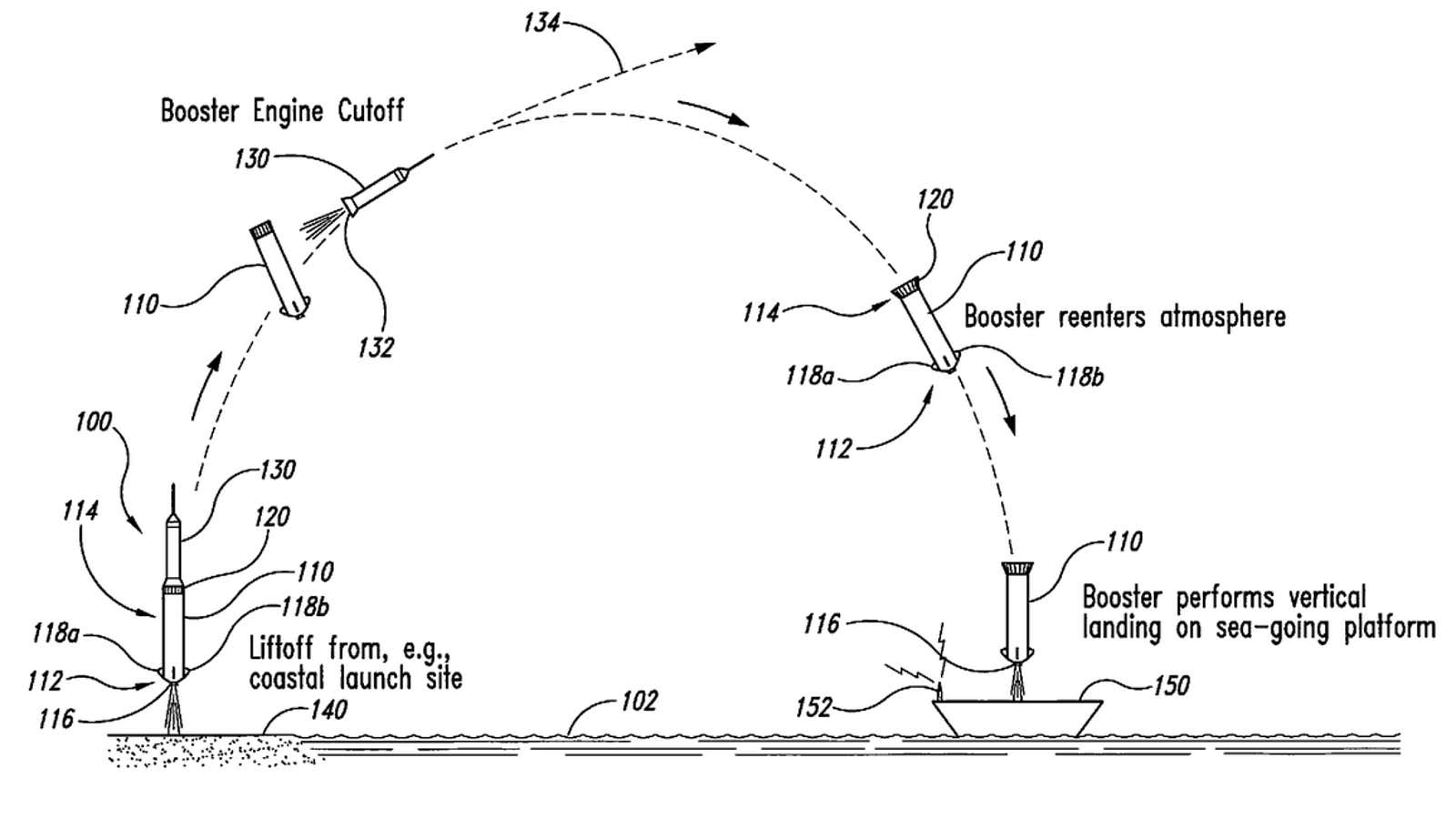Whoever is the first to develop reusable rockets will have a huge advantage in the business of putting things into space: It could chop tens of millions of dollars off the cost of a launch, instantly putting the company with the technology miles ahead of its competitors.
Elon Musk’s SpaceX is the leader when it comes to actually building these devices: It’s tested a vertical take-off and landing of a small-scale rocket numerous times, and has begun including a vertical landing gear on its satellite launches. While the company hasn’t landed a full-size rocket yet, each experimental attempt teaches the company more about the challenges of landing a rocket.
But someone else has the patent on this kind of technology: Blue Origin, the space exploration company founded by Amazon CEO Jeff Bezos. While the company hasn’t developed its technology as far as SpaceX, which already is launching satellites for commercial and government clients, it has been proceeding with a contract from NASA to develop a rocket-and-spacecraft combination. But before it launched a single rocket, it obtained a business method patent for a reusable launch vehicle, which is what’s pictured above.
Now SpaceX is challenging the Blue Origin patent in court. Its case argues that the idea of launching a rocket and landing it vertically is an old one, with plenty of available prior art, and that the Blue Origin patent doesn’t actually lay out any unique technology that would be needed to execute this method. The reason for the filing is clear: If SpaceX succeeds in developing a vertical-landing rocket, Blue Origin could troll them with this patent, forcing litigation, settlement, or a licensing fee. SpaceX, which has proven itself a willing litigant in the past, is launching a preemptive assault against such a move.
Musk and Bezos, just two of the gentleman billionaires pursuing space travel like sixteenth century European noblemen commissioned expeditions to the new world, don’t get on particularly well. SpaceX beat out Blue Origin to lease a US government launch pad late last year, with Musk dismissing Blue Origin’s progress, telling Reuters that “I think it’s a bit silly because Blue Origin hasn’t even done a suborbital flight to space, let alone an orbital one. If one were to extrapolate their progress, they might reach orbit in five years, but that seems unlikely.”
